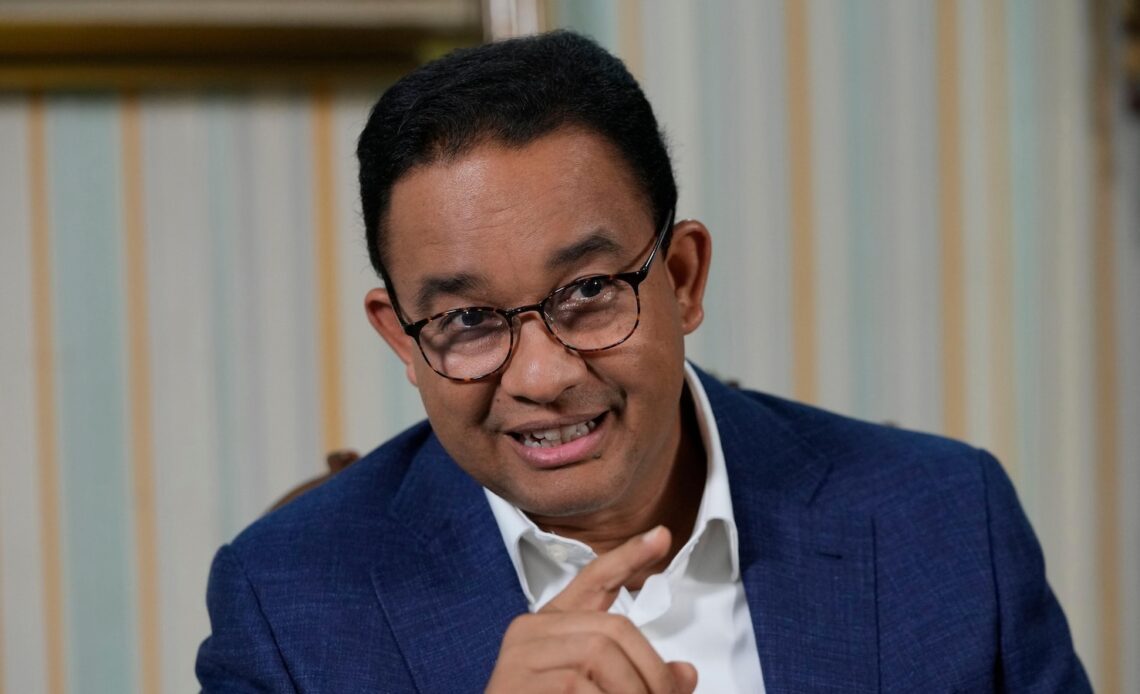BANDAR LAMPUNG, Indonesia — A former Jakarta governor seeking Indonesia’s presidency said democracy is declining in the country and pledged to make changes to get it back on track.
Anies Baswedan said in an interview with The Associated Press on Sunday that concerns about neutrality in the current government and the institution arose when the frontrunner in the presidential race, Prabowo Subianto, picked the son of the current president as his running mate.
The issue of neutrality has not existed in Indonesia’s elections since the fall of dictator Suharto in 1998, Baswedan said. “This means that there is a decline in trust, it means that our democracy is experiencing a decline in quality, it means that many legal rules are being bent,” he said.
Indonesia, with a diverse population of more than 270 million, is the world’s third-largest democracy after India and the U.S., and it has Southeast Asia’s largest economy.
The Feb. 14 election will determine who will succeed the popular President Joko Widodo, who is serving his second and final term.
The country’s Constitutional Court made an exception to the age requirement of 40 for vice presidential candidates that allowed Gibran Rakabuming Raka, Widodo’s son, to run at only 36. Later, the chief justice, who is Widodo’s brother-in-law, was removed by an ethics panel for failing to recuse himself and making last-minute changes to election candidacy requirements.
The ruling has been a subject of heated debate in Indonesia, and Raka’s candidacy is widely seen as implicit support from Widodo for Subianto’s third bid for the presidency. Subianto has vowed to continue the president’s development plan, in what experts view as an attempt to draw on Widodo’s popularity.
However, the executive director of the Association for Elections and Democracy or Perludem, Titi Anggraini, believed that corruption, vote buying and lack of opposition representation in Indonesia’s parliament were also contributing to the decline of the country’s democracy.
“The problem was unlikely to be solved in the near future and would likely require reforms to the current electoral system, party regulations, public funding and strict law enforcement,” Anggraini said.
Baswedan and the third candidate, former Central Java Gov. Ganjar Pranowo, have stayed in the second and third positions in recent opinion polls, and he said he is staying focused on delivering his own flagship programs in a bid to ensure that February’s presidential…
Click Here to Read the Full Original Article at ABC News: Business…

